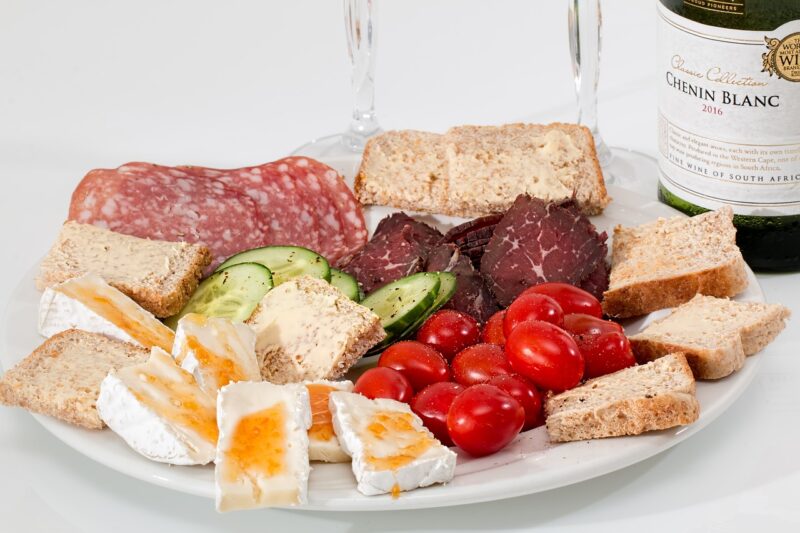
Protein is an essential nutrient for our bodies, playing a crucial role in muscle growth, repair, and overall health. Whether you’re a bodybuilder, an athlete, or simply someone looking to improve your fitness and health, understanding the various protein sources available to you is key. In this comprehensive guide, we will explore the best protein sources, their benefits, and how to incorporate them into your diet.
1. The Importance of Protein
Protein is one of the three macronutrients that our bodies need (the other two being carbohydrates and fats). It is made up of amino acids, which are the building blocks of muscles, tissues, enzymes, and hormones. Here are some reasons why protein is vital:
- Muscle Building and Repair: During exercise, particularly resistance training, muscle fibers are damaged. Protein helps repair and rebuild these muscles, leading to growth and development.
- Weight Management: Protein is known to increase feelings of fullness, making it easier to manage weight by reducing overall calorie intake.
- Metabolism Boost: The body uses more energy to digest protein than it does for carbohydrates or fats, leading to an increase in metabolism.
- Hormonal Balance: Protein plays a role in the production of hormones that regulate various body functions including metabolism and appetite control.
Given these benefits, it’s essential to include high-quality protein sources in your diet, especially if you aim for muscle gain or optimal health.
2. Top Animal-Based Protein Sources
Animal-based proteins are considered complete proteins, meaning they contain all essential amino acids needed for muscle repair and growth. Here are some of the best options:
2.1 Chicken Breast
Chicken breast is a staple for muscle gainers. It’s low in fat and high in protein, making it an optimal choice for those looking to build muscle without excess calories.
2.2 Eggs
Eggs are another excellent source of protein, providing all nine essential amino acids. Additionally, they contain healthy fats and are rich in vitamins and minerals, particularly vitamin D and choline.
2.3 Greek Yogurt
Greek yogurt is not only packed with protein but also offers probiotics, which are beneficial for gut health. Aim for the plain, full-fat versions to maximize benefits.
2.4 Fish
Fish such as salmon and tuna are rich in protein and healthy omega-3 fatty acids. Omega-3s have anti-inflammatory properties and are beneficial for heart health, making fish a great protein option.
2.5 Lean Beef
Lean cuts of beef provide a high amount of protein and are rich in iron and zinc, both essential for energy metabolism and muscle function.
3. Top Plant-Based Protein Sources
For those looking to avoid animal products or simply vary their protein sources, plant-based proteins can also provide ample amounts of protein:
3.1 Lentils
Lentils are a fantastic source of protein and fiber. They are versatile and can be added to soups, salads, and even made into lentil burgers.
3.2 Chickpeas
Chickpeas are not only high in protein but also contain complex carbohydrates and fiber, making them filling. They can be roasted as a snack or used in salads and hummus.
3.3 Quinoa
Quinoa is a complete protein source that provides all the essential amino acids. It’s also gluten-free and can be used in various dishes, including salads, bowls, and as a side dish.
3.4 Tofu and Tempeh
Both tofu and tempeh are derived from soybeans and are excellent protein sources for vegetarians and vegans. They can absorb flavors well, making them versatile for various cuisines.
3.5 Nuts and Seeds
While nuts and seeds are higher in fats, they also offer a good dose of protein. Options like almonds, chia seeds, and hemp seeds can be added to smoothies, oatmeal, or consumed as snacks.
4. Combining Protein Sources for Optimal Nutrition
For those following a vegetarian or vegan diet, it’s essential to combine different protein sources to ensure intake of all essential amino acids. Here are some effective combinations:
- Rice and Beans: Together, they provide complete proteins and are a staple in many cultures around the world.
- Peanut Butter on Whole Wheat Bread: A classic combination that offers a great balance of protein and healthy fats.
- Hummus with Pita Bread: The combination of chickpeas in hummus and whole grain pita provides a hearty protein boost.
By mixing and matching these sources throughout the day, you can achieve balanced nutrition that meets your protein needs.
5. How Much Protein Do You Need?
The recommended dietary allowance for protein varies depending on age, sex, and level of physical activity. General guidelines suggest:
- For sedentary adults: Approximately 0.8 grams of protein per kilogram of body weight.
- For active individuals and athletes: Between 1.2 to 2.2 grams per kilogram depending on training goals.
Tracking your protein intake can be beneficial, particularly for those looking to build muscle. Incorporating a variety of protein sources will help ensure you meet your daily requirements.
Conclusion
Including a variety of protein sources in your diet is vital for muscle gain and overall health. Animal-based sources like chicken, eggs, and fish provide complete proteins rich in essential amino acids. However, plant-based options like lentils, quinoa, and tofu can also contribute significantly to your daily protein intake. By understanding your protein needs and choosing the right sources, you can enhance your fitness journey and promote optimal health.
Make protein a priority in your diet, and you’ll be on your way to achieving your health and fitness goals.







